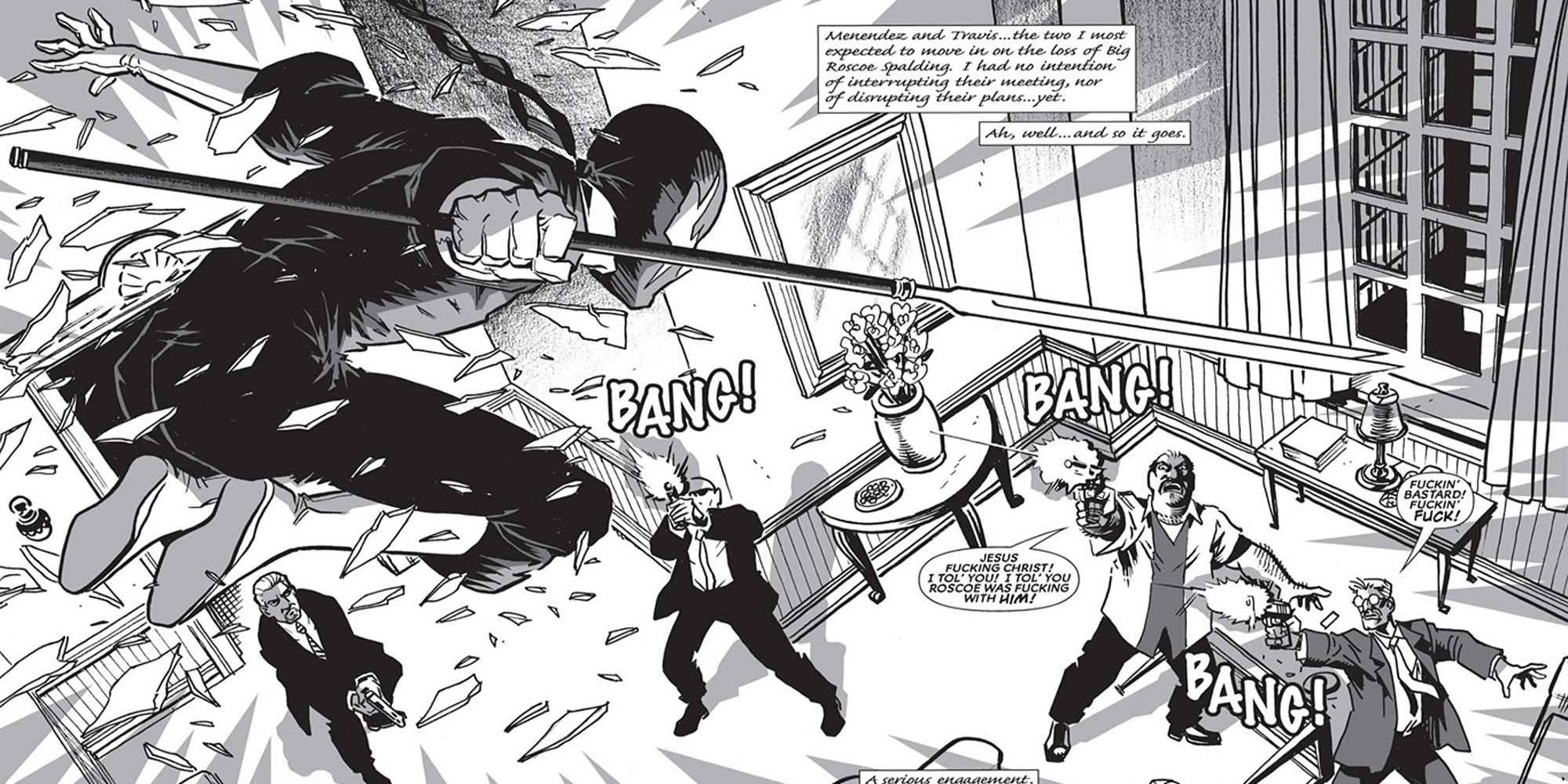Netflix’s upcoming Grendel adaptation may well change the superhero genre for good, given its unique, creator-owned origins. The streaming giant has recently announced an 8-episode order for Grendel with writer Andrew Dabb set to pen the script. Katy Keene cast member Abubakr Ali will lead an otherwise undecided troupe as Hunter Rose in the adaptation of Matt Wagner’s celebrated Dark Horse comic. But, beyond the talented personnel attached, the new show has a chance to do something genuinely innovative in the superhero space.
The original Grendel comics follow debonair vigilante Hunter Rose, whose disenchantment leads him to become New York’s preeminent mob boss across the first 3 Grendel issues. Later publications expanded and altered the character’s origins, forming a new backstory in which a brilliant young man named Eddie creates two identities for himself: one as charming socialite Hunter Rose and the other as Grendel, an assassin turned crime kingpin. While it is unclear which jumping-off point the Netflix adaptation will use for its Grendel story, both represent the beginning of a rich trove of narrative that spans 40 enthralling issues from creator Matt Wagner.
Grendel is poised to change the arguably damaged superhero genre for good, given its rarity as a creator-owned comic in 2021. Wagner managing to retain creative control over Grendel and executive produce the Netflix adaptation will result in a unique superhero narrative unconcerned with adhering to predetermined cinematic universes. Grendel‘s release can also create a new blueprint for superhero genre success outside of the current Marvel and DC monopoly, potentially leading to more independent comic adaptations down the line.

Grendel being a creator-owned comic is an anomaly given the state of the modern superhero genre, which has been dominated by two studios exclusively holding old intellectual properties. Marvel, in particular, has held a vice-grip on superhero TV, utilizing streaming giant Netflix to successfully re-tell big-screen flops such as Daredevil and The Punisher. An episodic format has also allowed for greater backstory utility in the Marvel universe, with shows like The Falcon and The Winter Soldier fleshing out characters that were jarringly implemented in their initial MCU turns. While done artfully, these streaming successes for big studios have severely stifled independent works, which is something Grendel can finally change. Grendel being green-lit by Netflix allows a superhero movie detached from a pre-existing IP to flourish and offers a chance for creator-owned projects to come to the fore. If Grendel can emulate even a semblance of the success its superhero counterparts enjoy on Netflix’s platform, it will light the way for more independent superhero projects to succeed in the future.
The sense of monopoly that DC and Marvel currently have in 2021 over the superhero genre is well documented, with studios outside of these limited to satirical takes on the traditional superhero story such as The Boys and The Umbrella Academy. While these are fine shows in their own right, it will be refreshing to see a back-to-basics telling of superhero vs. supervillain, which chronologically follows hero origins a-la Sam Raimi’s Spider-Man. While even Grendel, in Wagner’s own words, evolved into “a study of the nature of aggression,” his noir comic first followed traditional superhero tropes to set up its narrative’s evolution. While Marvel and DC series are destined to follow predetermined storylines and characters, Grendel sets itself apart by still being shaped by its creator some 40 years later and could be the start of a new era of superhero releases into 2022 and beyond as a result.




